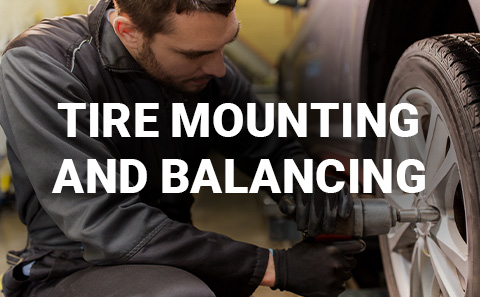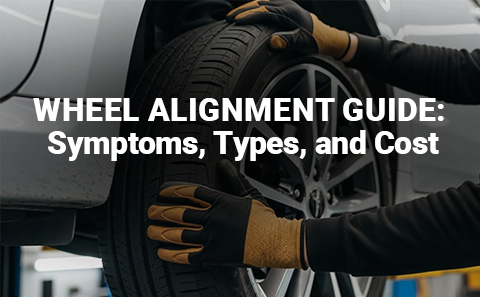Shipping is free for all orders | 90 Days money back guarantee
Shipping is free for all orders
7 Questions to Ask Yourself Before Buying Tires
Agota Szabo - August 13, 2018
As you know: tires are expensive. Depending on the size, type, and brand you get, they can run well over $100 per tire. Plus, you usually need four of them, so it can be a little hard on your wallet. So obviously, getting new tires isn’t something you just do on impulse. You want to be prepared and you definitely want to make sure you get ones that’ll work for you. In order to help you determine when it’s time to replace your tires and what kind of things you should be thinking about when purchasing new tires, we’ve put together this handy list! So here are some questions you should ask yourself before you buy:
Table of Contents:
# 1: How Much Tread Do I Have Left?
If you have a damaged tire or unrepairable issue or if a mechanic tells you that you need new tires, you can go ahead and skip this question. Aside from that, this question is extremely relevant. You don’t want to replace your tires if you have plenty of life left, otherwise, you’re wasting money. Checking your tread depth is pretty easy! You won’t get an exact measurement, but you will be able to tell if it’s time for a change. Put it head-down in the tread grooves, and if you can see all of Lincoln’s head, it’s time for new tires.
# 2: What’s My Tire Size and Vehicle Type?
Do you know your tire size? Probably not off the top of your head, but don’t panic! It’ll be right on the side of your current tires. You can also look in the door of your vehicle or your owner's manual. The other thing the size will tell you is your vehicle type. If your size starts with P you have what’s classified as a passenger vehicle. If you see an LT instead, then you’ve got what’s known as a light truck. You’ll want to pay attention to these, as you don’t want to put passenger tires on a light truck or vice versa. Sometimes the size won’t have any letters in front of it, and if that’s the case it’s pretty safe to assume it’s a passenger tire.
# 3: What Type of Tire Should I Buy?
The most common types of tires are all season tires, winter tires, summer tires, light truck tires, and performance tires. Some vehicles will have a suggestion for what type you should get. If not, it’s going to be down to pretty much where you live and what you drive. For example, if you live in Arizona, you probably won’t need winter tires, but if you live in Michigan and it’s December, winter or at least all season tires are probably not a bad idea. Or if you have a sports car you might want performance tires to get the most out of your drive, but they wouldn’t do many favors to your pickup truck. You get the idea. Just think about your situation and the kind of weather you’re usually driving in. You should also note that different tire types can also handle differently, brake differently in different situations, and have different levels of noise and different fuel efficiencies, so be sure to factor that into your considerations.
# 4: Do I Need Specialty Tires?
Do you have a trailer? Are you planning to go off-road? Any racing in your future? Do you haul things across the country for a living? If you answered yes to any of these then specialty tires may be for you. Aside from the tire types discussed above, they also make tires that are specific to a variety of applications, be they commercial tires, racing tires, mud terrain tires, or tires specifically designed to go on trailers. However, these specialty tires are really made for their specific applications, so keep that in mind when considering them. Trailer tires, for example, are designed to be towed and they won’t do well in a driving position.
# 5: Do I Have to Think about Cargo or Towing Capacity?
If you drive a light truck or certain SUVS, or if you’re hauling a camper, a boat, or other heavy loads around on a regular basis, then you will definitely need to take these into consideration. For instance, if you attach something to a trailer hitch, whatever you’re hauling is going to exert force on that hitch and therefore your vehicle. This is called a tongue weight, and depending on what that weight is, you may need a heavier ply tire than you normally would. This is the same principle with a light truck, if you’re putting heavy items in it every day, you’re going to need a tire that can support that. What’s more, some towing applications may require you to go up a size or even have special tread, so make sure to look into it if you carry heavy loads.
# 6: Is It Better to Purchase Tires in Pairs or All Four at Once?
Honestly, it kind of depends. You do want your tires to have a similar tread pattern and be the same type, but the rest depends on your vehicle. Some vehicles with AWD you have to change all 4 tires (or at least get tires that are exactly the same, down to the tread life). Other vehicles (either with 2-wheel drive or that aren’t as sensitive) you can change 2 at a time as long as you keep them similar. There’s also the tread wear to consider: if you change all 4, the tires will all have the same wear and the ride will be smooth. But let’s face it, you can’t always afford 4 tires at once, so if you have the option and you decide to get just 2, you’ll want to place those ones on the rear axle. That way they’ll wear a bit slower so there won’t be such a huge difference when you get the other 2. Just remember you can’t mix tire types and sizes (excluding staggered) on one vehicle. So if you’re planning to change your size, or switching to winter tires, you definitely want to do all 4 at once.
# 7: How Old Is My Spare Tire?
Even if you’ve never used your spare tire, if you’re buying tires anyway you should ask yourself this question. Why? Because tires do have a shelf life, and this goes for spare tires, too. After a while, the rubber is just naturally going to dry out, and this can be accelerated if it’s been sitting around in the heat. So if your spare is pushing 10 years old, you should replace it, too. You sure don’t want to be stuck without one!
Related Posts


Tire Mounting And Balancing: Difference, Processes, And Cost
Tina Alijevic - December 31, 2025














